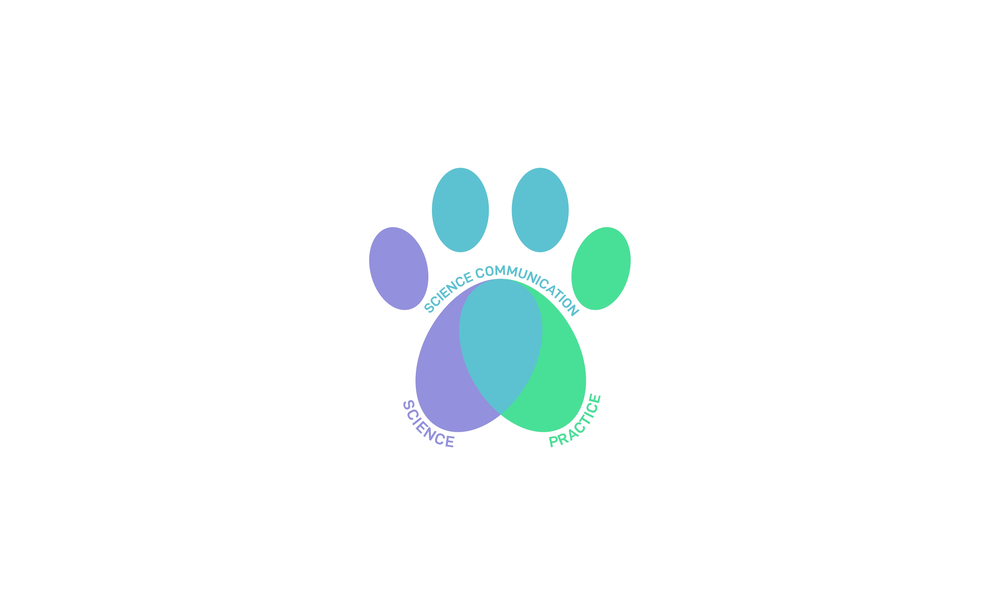Table of Contents:
Preparing Your Home and Heart for the Puppy Arrival
Welcoming a new puppy into your home is an exciting experience and preparation is key to ensuring a smooth transition for your new furry family member. Making your home puppy-proof is one of the first steps towards creating a safe environment for your puppy. Remove any hazardous materials, ensure electrical cords are out of reach, and secure loose items that might be tempting for a teething puppy.
Choose a designated area for your puppy to eat, sleep, and play. This helps to create a sense of security and belonging. Investing in a comfortable bed and puppy-appropriate toys can make this space welcoming. It is also important to set up gates or barriers if there are rooms you want to keep off-limits. Stock up on necessary equipment such as a harness, leash, food and water bowls, puppy food, and treats. Make sure you have cleaning supplies on hand for any accidents that might occur.
Introducing your puppy to their new home should be a gentle, gradual process. Bringing something familiar from the breeder or rescue shelter, like a cloth that still smells of their mother, can provide immense comfort. The separation from their mother and littermates is a profound change for a puppy, and it is vital to acknowledge the potential distress and uncertainty they may feel. By providing familiar scents and constant comfort, you help ease their transition.
It's essential to take time off to be with your puppy during their first weeks at home. Gradually training your puppy to be alone is crucial for preventing separation anxiety. Start when the puppy is completely settled in your home by leaving the room for very short periods while they are relaxed, gradually and carefully increasing the time and only when they are not stressed then moving to do the same when you go out of the house. Progress slowly and patiently to build their confidence and independence without causing stress or fear.
Lastly, prepare everyone in the household for the new arrival. Discuss responsibilities and routines to ensure everyone is on the same page when it comes to caring for your new puppy. These early preparations will pave the way for a loving and orderly environment as your puppy grows and becomes a beloved member of the family.
Understanding and Catering to Your Puppy's Needs
A puppy is not just a delightful addition to your family but a living being with its own unique needs. To ensure their wellbeing, it is essential to understand what makes dogs and specifically your particular individual dog thrive. Puppies require not only physical care but also social and emotional support to develop into healthy adult dogs.
Puppies also need a balanced diet to support their rapid growth. Find a high-quality puppy formula appropriate for their age, size, and breed. Consistency in their diet aids digestion and helps to establish a routine. Always have fresh water accessible for your growing puppy to stay hydrated.
Rest is another critical aspect of a puppy's life. They need plenty of sleep to help with development and learning. Create a quiet, cozy sleeping area where they can retreat and rest without disturbance. Emotional care, including affection and positive reinforcement, creates a strong bond and helps your puppy feel secure.
Regular vet check-ups will keep your puppy's health on track. Vaccinations, parasite control, and health screenings are essential for preventing illness. Don't overlook dental care either; introducing teeth cleaning early can prevent issues later on.
In summary, by understanding your puppy's multifaceted needs, you establish a foundation for their long-term health and happiness. Every element of care is critical and contributes to a well-balanced, content puppy eager to become your loyal companion.
Establishing a Feeding Schedule
A feeding schedule is imperative for your puppy's health. It aids in creating a routine, helps with house training, and ensures they're receiving nutrition at the right times to support their energetic lifestyle. The ideal schedule includes multiple small meals throughout the day as puppies have small stomachs.
Generally, puppies aged 8-12 weeks old require at least four meals a day. As they grow, you can reduce the frequency: three meals a day for puppies 3 to 6 months old, and then down to two meals for puppies over six months. However, this may vary depending on breed and size so it's best to seek advice from a professional. They can provide guidance tailored to your puppy's specific dietary needs.
Keep meal times consistent each day, which will help your puppy learn when to expect food. A quiet, distraction-free zone for eating will help your puppy concentrate on their meal, promoting better digestion. While established meal times are important, flexibility is also key as your puppy's needs may change as they grow.
Remember to monitor your puppy's growth and adjust portion sizes accordingly to prevent over or underfeeding. A consistent, well-managed feeding schedule not only contributes to the physical well-being of your puppy but also reinforces a stable environment for them to thrive in.
Setting Up a Comfortable Sleeping Area
Creating a comfortable sleeping area is essential for your puppy's development and overall comfort. This dedicated spot will serve as their safe haven where they can unwind and feel secure. Ensure the space is warm, draft-free, and away from busy foot traffic to reduce disturbances.
Selecting the right bed is critical. Choose a bed that's size-appropriate—big enough for your puppy to stretch out, but cozy enough to feel snug. Some beds come with edges or bolsters, which can give your puppy a sense of security. The material should be durable and washable, as puppies are prone to accidents.
Place the bed in a quiet corner of your home, preferably close to where the family also spends time. This allows your puppy to rest while still feeling like part of the group. In the beginning, you might add an item that has your scent, such as a piece of clothing, to help comfort your puppy.
Consider whether you'll allow your puppy to sleep in your bedroom. I do so with all of my dogs and have good experiences and I consider it especially important when you have a puppy to not leave it alone.
By setting up a comfortable and inviting sleeping area, you're providing your puppy with an area that's uniquely theirs, helping to ease the stress of adapting to a new environment. With a good night's rest, your puppy will be better equipped to tackle the challenges and excitement of the day ahead.
The Importance of a Consistent Routine
Maintaining a consistent routine is vital for your puppy's sense of security and ability to learn. A routine helps to manage expectations, reduce anxiety, and foster a sense of normality in their new surroundings. With a structured schedule, puppies are more likely to settle in smoothly and exhibit desirable behaviour.
Routines extend beyond feeding and sleeping patterns; they also encompass playtime, walks, and quiet time. Regular play sessions help establish periods of activity and rest, while scheduled walks teach your puppy when to expect exercise and relieve themselves outdoors.
Training sessions are also an integral part of your puppy's routine. Short, consistent training periods reinforce signals and good habits, and they provide mental stimulation for your puppy. Remember that consistency is not synonymous with rigidity. As your puppy grows, be prepared to adapt the routine to suit their evolving needs.
Everyone in the household should understand and adhere to the established routine. This uniformity strengthens the puppy's understanding of what is expected from them and when. By investing in a consistent routine, you are setting the stage for a well-adjusted dog that is a pleasure to have as part of the family.
Introducing Your Puppy to Their New Environment
Introducing your puppy to their new environment is a gradual process that shapes their feeling of comfort and safety in their new home. On arrival, allow your puppy to explore at their own pace, supervising to ensure they don't encounter anything harmful or overwhelming.
Start with a quiet area and slowly expand their exploration zone to avoid overstimulation. Use gentle encouragement and treats to guide them through different rooms, letting them sniff and become familiar with various scents and sounds. This exploration is part of your puppy's learning and will help them understand where they can and cannot go.
It's also important to introduce your puppy to their own belongings, such as toys, bed, and bowls. This helps them recognize items associated with comfort and security. As your puppy becomes more confident, you can begin exposure to outdoor spaces like the garden, always ensuring they are safe and secure.
Bear in mind that every puppy is different; some may be bold and adventurous, while others are more reserved and cautious. Be patient and move at a pace that's comfortable for your puppy. A calm and positive introduction to their new environment lays the groundwork for a well-balanced and happy pet.
Bonding with Your New Puppy
Bonding with your new puppy is a precious time that sets the stage for your lifelong relationship. This bond is built on trust and companionship and begins the moment your puppy arrives home. Spend quality time with your puppy, engaging in gentle play and providing plenty of cuddles to foster a sense of closeness.
Positive reinforcement is a key element in establishing a strong bond. Reward your puppy for good behaviour with treats and praise, which not only strengthens your connection but also encourages them to repeat those behaviours. Remember to be patient and consistent in your interactions; trust takes time to develop, especially in a new environment.
Grooming is another opportunity to strengthen your bond. Brushing your puppy not only keeps their coat in good condition but also provides a soothing experience that can help a good relationship with your dog. Make sure the experience is positive, with gentle strokes and no forced handling.
Finally, training sessions, though they serve to teach obedience and manners, are also bonding experiences. They provide one-on-one attention that your puppy craves and encourage a mutual understanding between you both. Keep these sessions short, fun, and full of praise to promote a joyful connection.
The time and effort you invest in the early days with your puppy will reap rewards for years to come, fostering a loyal and affectionate relationship. Bonding is not a one-time event, but a continuous and growing experience shared by you and your puppy.
Health Check: Scheduling the First Vet Visit
Arranging the first vet visit is a critical step in your puppy's health care regime. This initial appointment serves not only as a general health check but also as a baseline for future care and vaccinations.
During this visit, your vet will perform a thorough examination to check for signs of any congenital issues, infections, or parasites. They will discuss the appropriate vaccination schedule and provide advice on nutrition, exercise, and any breed-specific health concerns you should be aware of. This is also the perfect time to discuss preventive measures like flea and tick control, as well as heartworm prevention. Your vet can guide you through the process of setting up a long-term health plan.
It is crucial to make this first vet visit a positive experience for your puppy. The goal is for your puppy to associate vet visits with positive experiences, which can be achieved by ensuring they receive plenty of treats and affection during the appointment. Many veterinary clinics are happy to accommodate this by providing treats and using gentle handling techniques to make your puppy feel comfortable and secure. This positive association is vital for reducing stress and anxiety in future visits and promoting a healthy relationship with the vet.
Don't hesitate to ask your vet any questions you may have about caring for your puppy. They are a valuable resource for information and can help ease any concerns about your new role as a puppy parent. Establishing a good relationship with your vet is integral to maintaining your puppy's health and happiness.
Remember to bring any medical records or breeder information you have, as this will give your vet a comprehensive view of your puppy's health history. With this first visit, you're taking an essential step towards ensuring a healthy life for your beloved puppy.
House Training Basics
House training your puppy is an important training goal in their early life. Start by establishing a specific toileting area outside where your puppy can relieve themselves consistently. This area should be easily accessible and a place where you can lead your puppy to regularly throughout the day.
Develop a routine by taking your puppy to this spot at key times: after waking up, following meals, and after playtimes. Praise your puppy and reward them when they use this area. However, wait with the praise until they are completely finished before offering praise. Prematurely celebrating can interrupt them, leading to incomplete relief and potential accidents indoors. Positive reinforcement is crucial in house training; it encourages your puppy to repeat this desired behaviour.
Be patient and expect accidents; they are a normal part of the house training process. When mishaps happen, clean the area thoroughly to remove any scent, which discourages your puppy from using that spot in the future. It's important to never punish your puppy for accidents, as this could create anxiety and delay the training process.
Consistency from all household members in following the routine and reinforcement strategy will help your puppy learn faster. With regular practice, guidance, and patience, your puppy will become house-trained and more integrated into your family life.
Socialisation and Early Training Tips
Socialisation is a pivotal aspect of your puppy's development, influencing their behaviour and interactions for the rest of their life. It involves exposing your puppy to a variety of people, other animals, environments, and experiences in a positive and controlled way. Begin this process by introducing your puppy to familiar faces and gentle pets, ensuring these experiences are pleasant and non-threatening. However, socialisation must be conducted carefully to ensure your puppy's experiences are positive and not overwhelming. Quality over quantity is key; focus on safe, comfortable encounters that build your puppy's confidence. This careful approach lays the foundation for a well-adjusted dog capable of handling new situations with assurance.
You can also start with early and fun first training. Short, engaging training sessions will help your puppy learn the first steps of basic signals like 'sit', 'stay', and 'come'. Use rewards like treats or their favourite toy to motivate them and reinforce positive behaviour. Consistency and patience are key, as puppies learn through repetition.
Utilise puppy classes for assisted socialisation with other dogs and people. These classes provide a structured environment that fosters learning and good manners.
When socialising your puppy at home, give them access to different textures underfoot, various sounds, and safe objects to explore. It's vital to keep these encounters non-threatening; if your puppy seems overwhelmed, give them a break, and try again later. A well-socialised puppy is more likely to grow into a confident, well-adjusted dog.
Safety measures
Ensuring your home is a safe environment for your puppy is vital. Puppies are naturally inquisitive and can easily find themselves in harmful situations. Begin by securing potentially dangerous items such as toxic plants, chemicals, and small objects that could be swallowed. Safety gates are useful for restricting access to areas of the house that might be unsafe for your young pet.
Electrical cords are particularly attractive to puppies who might chew on them. Protect your puppy and your electrical items by hiding cords out of reach or using protective covers. Sharp corners on furniture can also pose a risk, so consider using corner protectors to prevent injury.
Windows and balconies need to be puppy-proofed to prevent falls. Ensure that windows are kept closed or screened, and balconies are off-limits unless your puppy is supervised. When it comes to your garden, check that fences are secure to prevent escapes and remove any dangerous items or substances from the area.
It's equally important to store food safely. Some human foods are harmful to dogs, so keep them out of your puppy's reach, and ensure that bins are sealed to prevent scavenging. By taking these precautions, you'll create a safer space where your puppy can explore and grow without unnecessary hazards.
Dealing with Typical Puppy Behaviour: Biting and Chewing
Biting and chewing are natural behaviours for a puppy as they explore the world and relieve the discomfort of teething. It is important to manage these behaviours constructively to ensure they don't develop into problematic habits. When your puppy bites, redirect their attention to a chew toy or bone designed for puppies. This will teach them what is appropriate to chew on.
Avoid using your hands or feet as playthings, as this can encourage biting. Instead, engage in games that promote gentle behaviour, such as fetch or puzzle toys that challenge them mentally. Consistent responses are key; everyone in the household should react the same way to discourage biting and chewing on inappropriate objects.
If your puppy is chewing on furniture or other off-limits items, guide the puppy away, and replace the item with an acceptable alternative. Remember to praise your puppy when they chew on their toys, reinforcing this positive behaviour.
Understanding that biting and chewing are part of your puppy's development can help you approach these behaviours with patience and consistency. By providing appropriate outlets and reinforcement, you'll help your puppy learn acceptable ways to satisfy their natural instincts.
Creating a Long-term Care Plan for Your Puppy
Developing a long-term care plan for your puppy is essential to ensure their ongoing health and happiness. This plan should outline preventive health measures such as regular vaccinations, deworming, flea and tick control, as well as routine vet check-ups to monitor their development and catch any potential issues early.
Nutrition is a cornerstone of any long-term care plan. As your puppy matures, their dietary needs will evolve. Work with your vet to select the best food for your dog's age, size, and activity level, and plan for gradual dietary transitions as they grow.
Physical exercise and mental stimulation must be maintained throughout your dog's life. Regular walks, appropriate play, and training activities foster physical fitness and cognitive well-being. Adjust these activities to suit your dog’s changing mobility and energy levels as they age.
Lastly, consider your puppy's emotional health. Continued socialisation, affection, and positive reinforcement contribute to their emotional stability. Plan to ensure your dog feels integrated into your family life, which is vital for their overall sense of well-being.
A thoughtfully crafted long-term care plan is a proactive way to cherish and nurture the life of your pet. With attention to health, nutrition, exercise, and emotional care, your puppy is more likely to enjoy a vibrant and fulfilling life alongside you.
Conclusion: The Puppy Parenting Journey - One of Love and Learning
Becoming a puppy parent is a journey filled with joy, challenges, and invaluable moments. As you navigate through the first week and beyond, remember that patience, consistency, and love are the key ingredients for a rewarding relationship. Embrace each step of the way, from preparing your home for their arrival to establishing a lifelong bond.
Your efforts in early training, socialisation, and setting up a safe environment will pave the way for a well-adjusted and contented puppy. Celebrate the small victories, like a successful vet visit or a mastered command, and learn from the hiccups. Every experience enriches your bond and understanding of each other.
In closing, cherish these early days with your puppy, as they pass all too quickly. The dedication you show now lays the groundwork for the years of companionship ahead. So, take lots of pictures, enjoy every cuddle, and welcome to the wonderful world of puppy parenting.
Book advice:
Check this excellent book to prepare your puppy best for the world:
Helen Zulch and Daniel Mills "Life Skills for Puppies"
Puppy First Week Home: Top 5 FAQs
What should I do to prepare my home for a new puppy?
Prepare your home by puppy-proofing the environment to keep your dog safe. Remove hazardous materials, secure loose items, and set up a designated space for your puppy to eat, sleep, and play. Stock up on essential supplies such as a collar, leash, food bowls, and puppy food, and ensure everyone in the household is ready to welcome the new member of your family.
How do I establish a good feeding routine for my puppy?
Starting with multiple small meals a day is recommended for puppies, with at least four meals a day for those aged 8-12 weeks, three meals for 3-6 months, and gradually transitioning to two meals as they grow older. Consistency in meal times helps with digestion and establishing a routine. Always consult with a professional for advice tailored to your dog's specific needs.
How can I bond with my new puppy?
Bonding with your new puppy involves spending quality time together, engaging in gentle play, and providing plenty of affection. Use positive reinforcement to encourage good behaviour and consider grooming and training sessions as additional opportunities to strengthen your bond. Patience and consistency in your interactions are essential to building a trusting and companionable relationship.
What are the basics of house training a puppy?
House training involves establishing a specific outside area for toileting and taking your dog there at key times. Praise them for using this spot. Be patient with accidents, avoid punishment, and clean up thoroughly to remove scents. Consistent reinforcement from all household members is crucial for successful house training.
When should I schedule the first vet visit for my puppy?
Schedule the first vet visit within the first week of your puppy's arrival. This appointment will cover a general health check, discussions on vaccination, nutrition, exercise, and a long-term health plan, and is also a good time to ask any questions you may have on caring for your new puppy.





